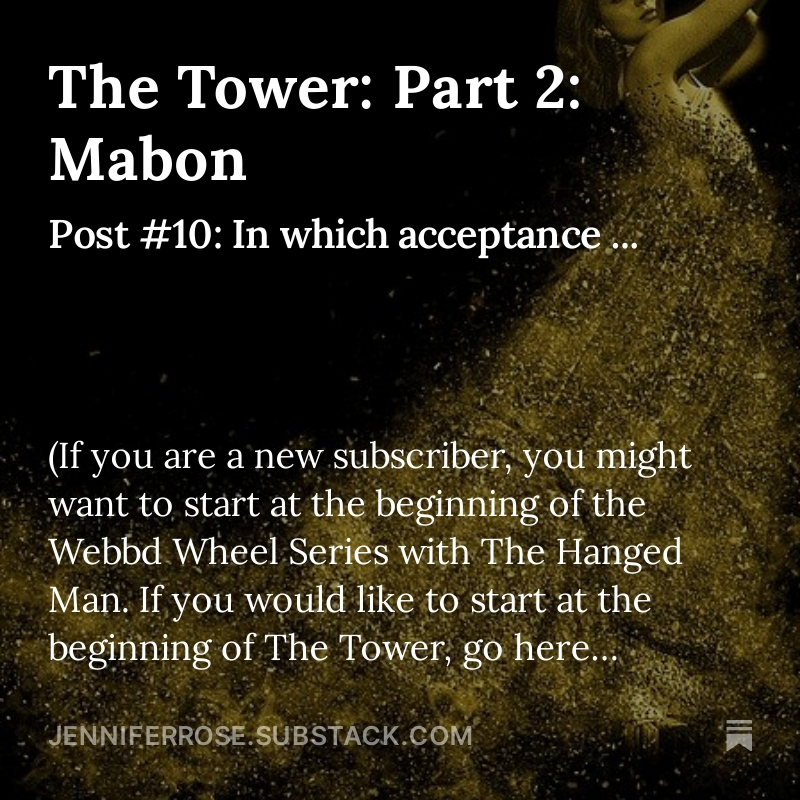by Jenny Rose | May 11, 2024 | Connection & Community, Emotional Intelligence, Shadows
… and she met a bear. She froze, watching it watching her, seeing the long claws, the muzzle raised to sniff the air, the marvelous deep pelt. She thought about everything she’d ever heard about dealing with bears. She stood still, attempting to convey the energy of no-harm.
The bear let out a “whuff” of breath, turned, and shambled away.
THE END
Once upon a time a woman walked through the woods and met a man she did not know. He made no eye contact, said nothing, and walked on. The woman followed his lead and ignored him, continuing on her way in a direction well away from his. She was conscious of a new alertness, a slight acceleration in her pulse. Her peaceful walk, her gratitude and appreciation of the balm of nature, her healing solitude, now took on the aspect of carelessness and risk. She knew some would say she was asking for trouble to walk in the woods alone. Was her comfortable clothing provocative? Were her jeans too tight? Did they send a signal that she wanted sex? Where, exactly, was she? If she called for help, could she be found quickly? Was she sure what direction she was walking in? She didn’t want to catch up to the man, didn’t want him to think she was following him or trying to get his attention. She didn’t want to linger in case he’d doubled back and was behind her. How fast was too fast? How slow was too slow? What was the fastest way back to her car?
She stopped, hesitating, sheltering behind a thick tree. Maybe the man was harmless. Maybe he had come to be alone and quiet, too. Maybe he’d hardly noticed her. Maybe he was a good man like her brother, her friends.
Maybe he was parked near her car and would wait for her to come out of the woods …
TO BE CONTINUED
Once upon a time a woman walked through the woods and met a man she didn’t know. He made eye contact with her, smiled, said, “How are you?”
The woman made her face smooth and calm, but inside she shrank and adrenaline kicked through her. Should she smile? She’d been told not to smile at strange men, lest it be misread. Should she reply to his greeting? Should she walk on without acknowledging him, or would that make him mad? Or hurt his feelings? (Probably he was a perfectly nice, harmless man.) Did she have anything she could use as a weapon? She’d seen no other cars when she parked; was anyone within earshot?
Her thoughts raced. Her steps slowed while she considered what to do. She smiled slightly without meeting his eyes. She didn’t speak and didn’t stop. As she walked away, she listened for sounds of him behind her, but all she could hear was the hammering of her heart. She didn’t dare look over her shoulder in case he was behind her and took it as encouragement. She felt naked. Were her jeans too tight? She wanted to take off her jacket and tie it around her waist, but she didn’t want to do anything to make him think she was afraid of him. She forced herself not to run. She lengthened her stride, standing tall, trying to project assertiveness.
She began to circle widely, back to where she’d parked her car …
TO BE CONTINUED

Photo by freestocks.org on Unsplash
I’m not on TikTok (God forbid), but I’ve been hearing about a recent viral sensation around the question of whether, as a woman, we’d rather meet a bear in the woods or a strange man. The vast majority of women would much prefer to meet a bear. The question was posed to me with no context and I didn’t need any time to think about it. I’d rather meet a bear, of course. A bear isn’t going to rape me. Bears don’t carry guns, abduct women, or hurt women for pleasure. I’ve often had brief interactions with black bears, both here in Maine and in Colorado. I’m not food. Any food I’m carrying can be tossed aside. As long as I don’t inadvertently get between a mom and her cubs, I’m not a threat, not something that needs to be attacked. If I am attacked and mauled, I’d far rather be hurt that way, or even killed, than fall into the hands of a twisted man. Bears are predictable. They don’t stalk, torture, lie, manipulate, kidnap, use substance, or terrorize for the fun of it.
A man might do anything.
A bear would recognize me as a human being. A man might not.
I’m told there’s a lot of anger from men about this answer, to which women respond with, “Thanks for illustrating the point so well. See? That anger, that language, that defensiveness and denial are exactly why we’d rather meet a bear than a man.”
And around and around we go.
Interestingly, an article I found that talked about this said when a man was asked if he’d rather his daughter met a bear or a man while walking alone in the woods, he eventually chose a bear.
I think about these things more than I have in years. I think about them every day at work, where I interact with all kinds of people as a professional, and every day as I walk the few blocks to and from work. I’m angry about it, because I assumed by the time I was 60 this sort of thing would be behind me. I forget this kind of behavior and threat really has nothing to do with my age and attractiveness; merely being a female is enough. For some men.

Photo by Sam Burriss on Unsplash
There’s no point is saying “not all men” because everyone knows that. Of course not all men are a threat to women; that’s not the point. The point is all men might be a threat and women can’t tell. We have to assume “all men,” for our own safety until we’re satisfied the man we’re interacting with is OK. Sadly, we’re often wrong. The vast majority of male violence against women and children is perpetrated by someone known, either a close connection or an acquaintance.
Men close to me who I trust have told me I’m “too nice.” I’m too warm. I’m too empathic. It’s infuriating. All my life I’ve worked with people. I like people (mostly). It doesn’t occur to me commiserating with a (overweight, completely unattractive, past middle-age old hippie with six strands of hair in a ponytail) patron over chronic back pain (beer belly) could possibly be seen as a come-on, an invitation to flirt and step over boundaries. Until it happens. And then I’m furious with myself, with him, with a world where a 60-year-old female lifeguard can’t say, “Jeez, sorry about your bad back,” to a male patron without having to spend the next month acting like a stone-cold bitch in order to reclaim boundaries.
It’s exhausting, and nearly impossible to explain to a man. It’s simply not in their experience and most of them can’t imagine living this way. But every woman knows exactly what I’m talking about. The divide between women and men gets deeper and deeper, fills with resentment and even hatred, because some men can’t or won’t understand our reality. It breaks my heart. Healthy men and women need one another. I don’t think we can effectively address the problem of male violence against women and children without healthy men.
I’m also thinking about this because we’re about to embark upon a major remodeling project in our home, which means we’ll have some months of workmen coming and going. I like men and I love watching men at work, learning about structure and building, observing, chatting. I would also like to occasionally make cookies or muffins, buy pizzas, and find other ways to show appreciation for the hard and expert work these guys will do. I want to communicate clearly and assertively with the contractor to make sure we’re on the same page and we understand one another’s expectations. I want to make healthy, respectful professional connections.
But I’ll probably let my male partner do most of the interfacing. He’s the one at home all the time anyway. It’s safer for him. I will connect with the contractor and write checks, but otherwise I’ll make myself small, stay out of the way, and try not to attract attention, including refraining from expressing “too much” gratitude or warmth. Whatever the hell that means.
It makes me sad. This is a big adventure for us. I’d like to have fun, embrace the chaos and change, enjoy the process and get to know the people who are making it possible. But the risk is too great.
This bear versus man viral question is important because of the spotlight it shines on female experience. Instead of an opportunity for further male outrage and denial or stoking more hatred for men among women, it could be a moment to foster a better understanding of the experience of having to live defensively every single day as a woman, knowing even that may not save us from male violence, and if we do fall victim to male violence, we’ll be blamed for it. (Our jeans were probably too tight. Or we shouldn’t have been walking alone.)
Or we could just go talk to the bears.
Questions for women:
- Would you rather meet a man you don’t know or a bear while walking alone in the woods?
- When a strange man is friendly with you in person (and you’re not looking for a date or a lay), what do you do?
- What do you routinely do in an effort to avoid male violence?
Leave a comment below!
To read my fiction, serially published free every week, go here: 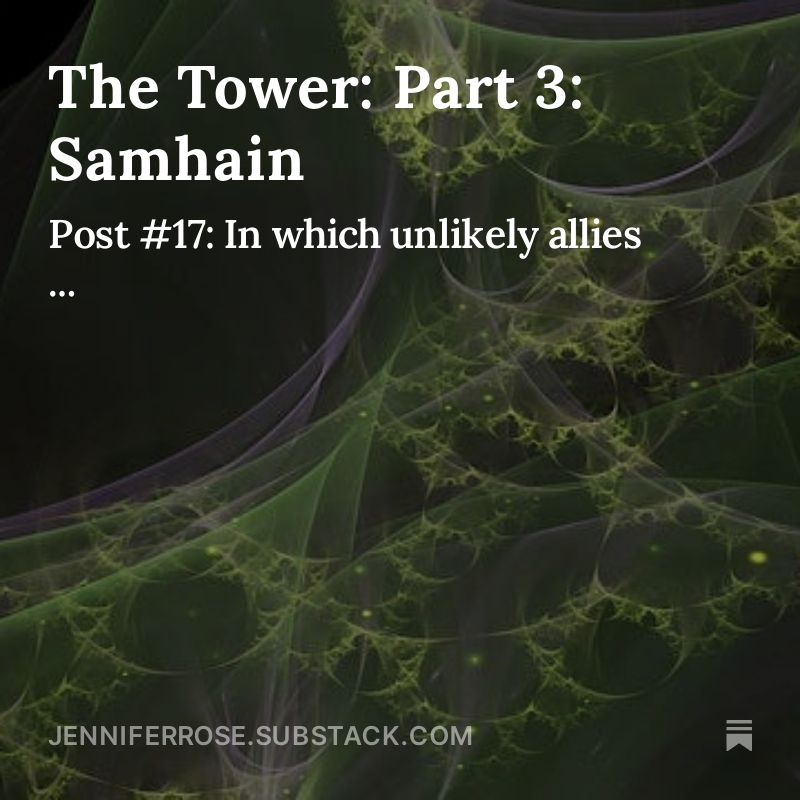
by Jenny Rose | Apr 27, 2024 | A Flourishing Woman, Mind
A few weeks ago I explored self-trust. Until I wrote that piece, I had not realized how deeply I distrusted myself. (As a writer, I find nothing clarifies my thinking better than written inquiry. The process uncovers so many unconscious and hidden things.)
In that post I speculated about choosing to trust myself, as trust is a belief, and beliefs can and do change. I thought it would be interesting to consciously trust myself for a few days and see what happened.
What has happened is a profound change in my interior life and my mental health. What happened is the realization that learning to self-love, while a healing and valuable practice, was not, after all, what I most needed.
This still seems strange to me. We are certainly taught love is the greatest feeling, the closest to the Divine we can come, the best we can be as human beings. We define love endlessly, discuss it, long for it, search for it, tell ourselves it will fix everything if only we can find someone to love, if only someone will love us completely, unconditionally, forever and ever (or at least until death do us part), amen.
But my experience has taught me love is changeable and elusive. All kinds of abuse masquerades as love. We don’t all mean the same thing when we express love.

By Marianna Smiley on Unsplash
Perhaps most heartbreaking of all, we don’t always value the love that comes our way, and we may learn to distrust it. Every master manipulator in the world recognizes the power of our need for love. Once that need is used against us, we are on our guard against love.
Love hurts. Love can endure, but a withered, starving love living on memories and perhaps based on delusions or the simple call of blood is a desolate ghost haunting our hearts. Love can scar us so deeply we’re never the same.
The daily practice of loving oneself is less complicated than loving another. At the very least, I know what I mean when I say it to myself, and my self understands my demonstration of it. Nothing is lost in translation. I can trust my own love.
And there’s that word – ‘trust’. Trust and love: does one require the other, or are they separate? One is a feeling (love), and one is a belief (trust). Both can be manipulated. In terms of our love and trust of ourselves, both are highly subject to interruption or even amputation by those who influence us, especially as children. If we are repeatedly given to understand we are not lovable or not to be trusted, we internalize those beliefs before we even have language. We don’t learn to love and trust ourselves.
Internalized beliefs are enormously powerful right up until we examine them closely, at which point they can vanish like a wisp of smoke. Once we’ve seen them as false, we become conscious of their pervasive influence and our internal structure changes in astounding ways.
This is what has happened to me.
When I set out to live a few days consciously trusting myself, I realized within an hour my obsessive and unending loop of review and preview. Just like a fish in water, I have no memory of ever living any other way, so I never noticed it before. Well, that’s not true. I noticed it, I just called it anxiety. As I’ve always been anxious and expected I always would be, I didn’t think further about it.
In an example from my childhood, when I was very young, kindergarten age, my mother had a lot of pain and was quite unhappy. I had a younger brother and we had cats and dogs. In an effort to take care of my mother, I learned how to do things like make beds, sort laundry, set up the coffee maker, make orange juice in the blender (frozen concentrate), take care of the animals, tie my own shoes and teach my brother to tie his, etc.
I vividly remember lying in my bed, my brother across the room in his bed, reviewing everything I’d done that day. I had trouble with hospital corners on the beds because I wasn’t strong enough to tuck the sheets in properly under the mattress. Mom had to bend over and do them again, so I failed to help and caused her pain. I didn’t turn a sock right side out when I sorted the laundry. I could tie my own shoes, but I was baffled trying to teach my brother to tie his while facing him. And so forth and so on.
Review: I hadn’t done it right. I hadn’t helped. I hadn’t been perfect. I hadn’t made Mom happy. I had to do better. Preview: Next time I would look at every piece of laundry, be sure nothing was inside out. Next time I would remember how to sort it properly so Mom wouldn’t have to bend down and do it herself. Next time I would figure out a way to get the hospital corners right, but I wouldn’t have to face that again for a week or so. Maybe I’d be stronger or bigger? If I got behind my brother and tied his shoes from that angle, could I do it? I had to do it! It hurt Mom to bend down.
This habit, this ongoing internal review and preview, has never stopped. Whatever I’ve just done, I review it. Whatever I’m about to do, I preview it. Racing thoughts. Circular thinking. Problems with sleep and chronic tension. Adrenal overload and exhaustion. The need to distract, to make it stop. The inability to have a quiet mind. Most of us are familiar with the symptoms of anxiety.
I believe my anxiety has been rooted in my self-distrust. When I decided to behave as though I do trust myself, I became conscious of my lifelong review and preview habit, as much a part of me as my blue eyes. At the same time, I discovered the solution. The minute I catch myself either reviewing or previewing, and it’s many, many times a day, I say, “I trust you,” to myself.
And I stop. I don’t need to review. I don’t need to preview. I did the best I could, because I always do that. I’ll do the best I can, because I always do that.
“I trust you.”
I’ve also realized, after long experience of sorting through my own psyche, this self-distrust is not mine. It doesn’t smell like me. It’s not home grown. It came from someone outside me, like so many of the unmanaged, unacknowledged emotions and beliefs I’ve carried, recognized as not mine, and let go.

By Danijel Durkovic on Unsplash
I discovered, as I wrote that post on trust, I do trust myself. I’ve always had cognitive dissonance around trust. Those around me didn’t trust me, yet I trusted myself. I trust my intuition. I trust my empathy and sensitivity, I trust my intention to do the right thing, I trust my flexibility and my ability to learn. I trust my ability to love. I trust my ability to think critically and recognize the truth, no matter how unwelcome. When I assure myself of my trust, it’s not a lie. It’s a truth buried for years under trauma.
I suspect many of us review and preview, consciously or not. It’s wholly ineffective in terms of healthy functioning. It makes us less flexible and resilient. It tires us out, creates long-term chronic stress, and is a constant no-confidence vote we give ourselves. It doesn’t make us more perfect; in fact, it does the opposite because it encourages us to be brittle and fearful. It doesn’t stop us from making mistakes. It turns us away from presence and authentic expression and towards behaving like automatons with a rigid script.
It gives us anxiety.
Most of all, reviewing and previewing doesn’t keep us safe. It doesn’t help us feel loved.
The compulsive habit of reviewing and previewing took up an extraordinary amount of space in my mind and required enormous quantities of energy and attention. Without it, I feel an internal spaciousness I’ve never had before. I read more. I write more. I can rest and relax. I’m far less driven, far more comfortable in my own skin. I’m more present and mindful in the moment, and with my feelings and my body.
I’m far less anxious.
Learning to love myself has been a gift. Reclaiming trust in myself has changed my life.
Questions:
- Do you love yourself? If not, why?
- Do you trust yourself? If not, why?
- If you could only have one, would you prefer others to trust you or love you?
- What do you think is more important socially: love or trust? Why?
Leave a comment below!
To read my fiction, serially published free every week, go here: 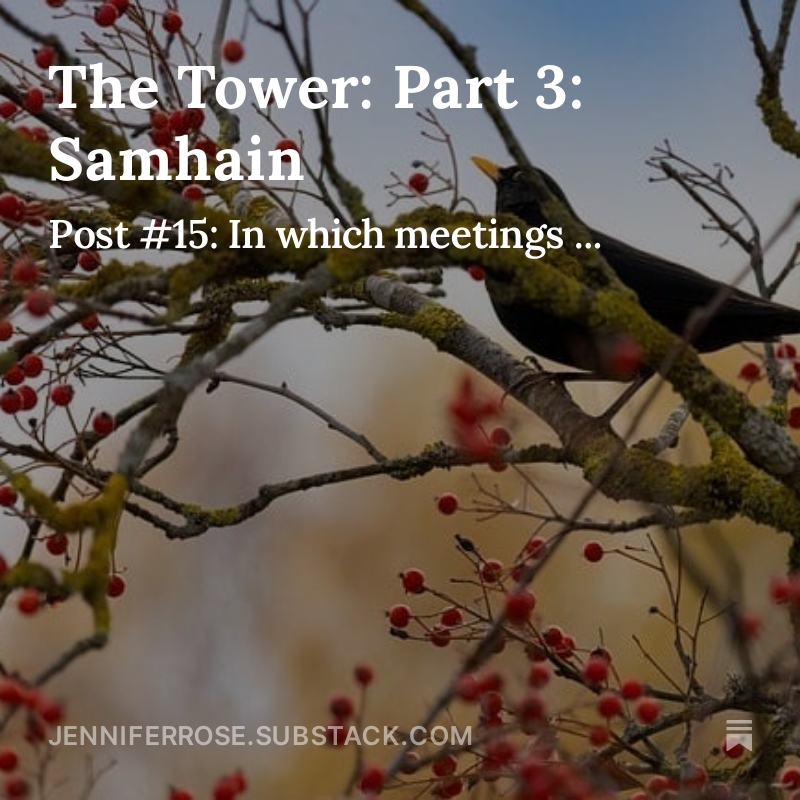
by Jenny Rose | Apr 13, 2024 | Connection & Community, Emotional Intelligence, Shadows
I have felt, for a period of some years and more frequently since 2016, that the planet would be better off without human beings. I’ve said it, I’ve thought it, and this is the first time I’ve written it. I would be happy to be the first in line, gladly give up my life in the certain knowledge that without us, Earth could heal, cleanse itself, and nurture all the countless species we have failed to notice, value, and cherish. Let the rape stop. Let the wide-scale poisoning stop. Let the brutality, suffering, stupidity, greed, and criminal disregard for others stop.

Photo by NASA on Unsplash
I freely admit to the pessimism and bitterness inherent in my view. I’m also aware of how paradoxical it is. I truly care about most people. Put a single human soul in my path, and I rarely fail to make a connection and feel some kind of empathy and kindness for them. I’ve spent my life caregiving, supporting, and teaching people, taking great joy in my contribution.
In my last few posts, starting with “The Locked Room,” I’ve thought a great deal about self-love and self-trust. It occurs to me my despair over human behavior as a whole must include me. My willingness to see us all wiped out includes a willingness to be wiped out myself. If other humans are capable of the atrocities happening all around us every day, so am I. If I want to see that dark potential destroyed, if I’d be glad of it, even, my self-love is seriously incomplete.
I’m not sure I’d call it self-hate. I don’t hate myself, you, the stranger on the street, or friends and family, but I hate what we are capable of. I hate what we can (and in some cases choose to) do. I believe some of us are willing to heal, grow, change, unite, and make better choices, but right now most of the human power in the world (as we understand power) lies in the hands of a few louts nobody seems to be able to overcome. Indeed, many cheer them on.
And that could be any of us, cheering them on. In the right context, with the right ideology, it could be any of us. I am too old to tell myself fairy stories about how I would never fill-in-the-blank. Easy to say as I listen to my sheets rotating in the washing machine, drink clean water from my tap, notice the old copper pipes rattling as the furnace comes on, and type on my laptop in my fully electrified, clean, intact house in a peaceful neighborhood on a Saturday morning with my feet propped up on my desk. I am sane. I am healthy. I am well-fed, housed, and employed. Most people do not have the luxuries I take for granted, the safety, the peace. People do terrible things out of terrible pain and dysfunction. I am not immune. None of us are. I’ve been fortunate, and that’s through nothing but luck.
A few weeks ago I read a piece by an author on Substack, Anna Kay, who writes a newsletter called The Hinterlands. I stumbled across her “A World Without a Heartbeat” by chance. She was not a writer I was familiar with, though I have since subscribed to her. She turned me inside out. I wept. I was comforted. I was awed and envious of her evident belief in human goodness. I was softened. I was challenged.
Most of all, I was challenged. As I read her words, I glimpsed a different frame, a frame of hope rather than bitterness.
I could not possibly paraphrase her words and I wouldn’t dare try to give you a synopsis. It’s not a long piece, and if you only follow one link out of the hundreds I’ve posted here in the last eight years, let this be the one. Please.

By Photoholgic on Unsplash
What moved me most was a world without humans would be a world without stories. A world without stories, a world without music, a world without art. A world without reverence and gratitude for nature. A world without human appreciation. Somehow, that seems like a terrible loss. I’m not sure why. Wouldn’t the planet be every bit as rich and beautiful if no one enjoyed it? Surely it would. Yet the loneliness of feeling unseen and unappreciated hurts because I’ve lived in the heart of that feeling.
The question I ask myself is am I willing to allow some or all of my bitterness to dissolve in order to deepen my ability to self-love? Bitterness is a heavy burden and there’s plenty in the world. Do I need or want to add to it? Is it useful?
It’s true we humans are capable of terrible things. Isn’t it also true we’re capable of remarkable courage, generosity, intelligence, creativity, and love?
Couldn’t we each make a list of human teachers, guides, beloved ones who have inspired us, protected us, and made us smile as well as a list of those who have done us wrong?
Our choice is which list to make, which to dwell on.
I’ve become deeply involved with the Substack community. I follow several other creatives simply because they inspire me. They make me feel better about the world, about life, about myself. They balance some of my despair and horror regarding the state of the world with beauty and hope. I’d like to introduce you to some of them:
Questions:
- Do you believe humans have value as a species? Why or why not?
- What human-driven activity gives you hope?
- Do you see humans as part of a healthy planet or an invasive species, wiping out all competitors?
Leave a comment below!
To read my fiction, serially published free every week, go here: 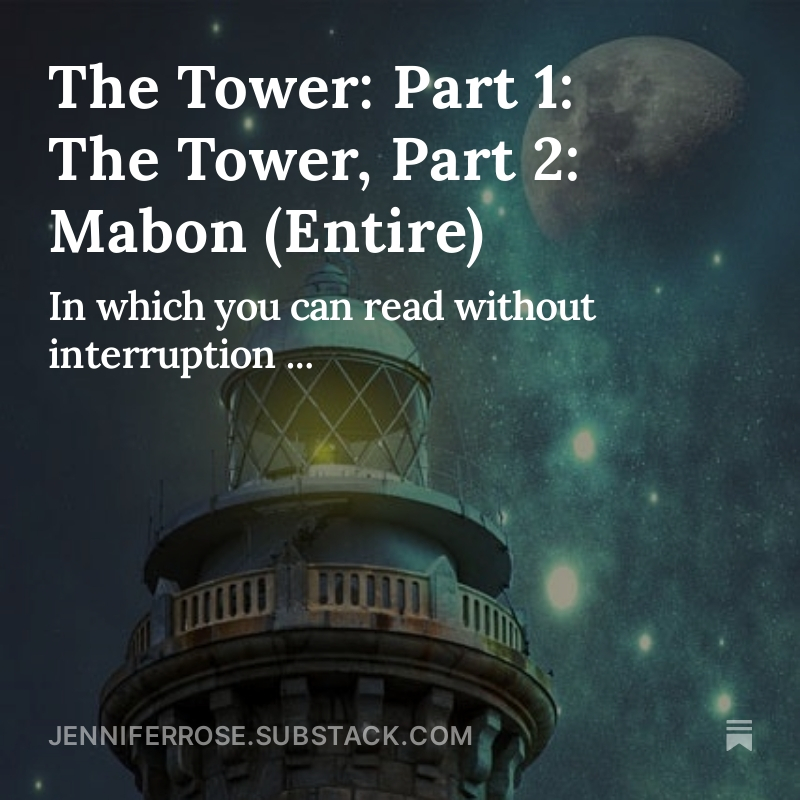
by Jenny Rose | Mar 30, 2024 | A Flourishing Woman, Self-Love
When I wrote about internal locked rooms earlier in the month, I had no idea how much there would be to unpack. In subsequent discussions about locked rooms and unconditional love (for a connect-the-dots map go here) a friend tells me she believes trusting herself is the biggest barrier for her in unconditionally loving herself. Me being me, I asked her how we define trust. In asking her I asked myself.

Photo by Jonathan Simcoe on Unsplash
Here we go again.
Trust is defined by Online Oxford Dictionary as “firm belief in the reliability, truth, ability, or strength of someone or something.”
Trust is a tricky subject for me and I’ve so far avoided taking it head on, but this feels like the right time. Part of my hesitation to talk about it is my own identity as a person who doesn’t trust easily.
I feel that piece of identity as a shameful aspect of my character. As I write this, I have a vivid childhood memory of being in the back of a dim car in a blinding snowstorm feeling scared. An adult in the car was also fearful, as were the family dogs. The driver asked me, “What’s the matter, don’t you trust me?”
The answer clamored inside the car, “NO!” For a moment it seemed to me we’d all shouted it, though nobody said a word and I huddled, frozen with fear and not daring to speak, in my corner.
It’s bad not to trust; disloyal, unloving, unnatural. But I learned very young trusting those around me was dangerous. All my life I’ve been torn between my shame about not trusting and a determination to survive and learn to self-defend … which sometimes (often?) means not trusting.
I don’t see trust as a black-and-white belief. I might trust someone completely with money and business affairs, but not at all as a confidant. I might trust someone as a parent but not as a dog walker. I might trust someone’s essential goodness but not their reliability in following through on plans.
This question of trusting ourselves, though, is slightly different. What does it mean, exactly, to not trust ourselves? What do I mean when I say it to myself?
Trust is defined as a belief, and beliefs can and do change. Belief is a choice. My belief that I’m untrustworthy is not something I was born with, but something I internalized from my family. I’m untrustworthy because I’m dramatic, I struggle with math story problems, I have needs and feelings, I’m intuitive, I’m sensitive, I have boundaries, I challenge authority and rules, and I tell the truth, among many other reasons.
Internalized voices are a bitch, because we don’t realize or remember they came from someone outside us.
And people outside us lie. People outside us can never fully see what’s inside us. People have agendas, their own wounds and trauma, and navigate around their own internalized bullshit.

Photo by Cristian Newman on Unsplash
People outside us are not necessarily reliable sources about our worth and value as a human being.
If trust is a “firm belief in the reliability, truth, ability, or strength of someone or something,” we have specifics we can explore.
Reliability: I know myself to be reliable. I have many flaws, but my integrity is strong and I keep my word to myself.
Truth: A thorny aspect of trust. I wrote two paragraphs here about the ways in which others perceive my truthfulness. On edit, I realized none of that has to do with my truthfulness with myself, which will always be invisible to the outside world. Do I trust my truthfulness with myself? Yes. Absolutely.
Ability: This is my weakest area of self-trust. In some ways. At some times. I wrestle every day with imposter syndrome. On the other hand, I absolutely trust my ability to write, to teach, to swim, to dance, and to do many other things. Oddly, though I trust my ability in most cases, I don’t want others to trust my ability because I have a huge fear of disappointing people. This, too, is an old wound, first opened when I received constant messaging about how disappointing and inadequate I was as a child. Because of that, I don’t want people to rely on me for fear I’ll let them down, not from my perspective, but from theirs.
I told you trust was tricky for me.
Strength: Which brings me to strength. This, for me, is a no-brainer. I have absolute belief in my own strength. God knows I wouldn’t be sitting here at the keyboard typing if I hadn’t been strong all my life.
Given this mostly positive review of the components of this definition of trust, what’s the problem? Why have I so consistently mistrusted myself during my lifetime?
I can easily come up with two reasons. There may be more lurking in the background, but these two are in front: One is trust in my physical body, and the other is perfectionism.
Perfectionism is one of the first things I wrote about on this blog. It’s another piece from my childhood I’ve struggled with it all my life, and I’m certainly not the only one. I’m conscious of it now, which is helpful, but it affects every day of my life and if I’m not mindful it rules me. Publishing this blog was one of my first real efforts at resistance. It took more than a year of weekly publishing to stop feeling panic as I pushed the “publish” button after a reasonable amount of writing and editing.
Even as perfectionism drives me, I’m aware enough to know I can’t define it beyond pleasing people. Which is impossible, and I know that. Yet the internal pressure to be perfect seems to be inescapable.
I’ve also written extensively about expectations. As a child, I was expected to be perfect according to conflicting expectations from three adults on whom I was dependent. Needless to say I failed to please any of them, which meant I lived in a constant state of shame and fear of abandonment. A perfect setup for internalized self-loathing. The road from self-loathing to considering unconditional self-love has been an amazing journey.
I was aware, as I explored ability, reliability, truth, and strength above, of a little voice in my head saying, “Yes, but—,” a precursor to the time I was late, or forgot an appointment, or the occasions I did deliberately lie, or the times I felt weak, or when my ability did not live up to my own unconscious standards of perfectionism.
As I became aware of this, I realized I will never trust myself if I aspire to be perfect in these four categories. I have never been perfect, I am not perfect, I never will be perfect, and I’m not much interested at this point in my life in attaining perfection in any way.
So fuck off, perfectionism. I’m not your bitch anymore. AND you will not stop me from loving myself, unconditionally or otherwise. Unconditional love is not built on some ridiculous set of expectations.

Photo by Emma Backer on Unsplash
Which brings me to an interesting insight on my relationship with my body. Let’s not do the body-as-a-political-signal thing, OK? I’m sick of it. We all live in a body. We have baggage about how our bodies look and function. We’re pressured, every day, to try to buy a “better” body, especially children. In today’s world, many of us feel we “should” be different, no matter what we look like. Currently, we’re obsessed with appearance and virtue signaling rather than health and function.
I don’t hate my body. However, due to autoimmune issues and years of chronic pain, I haven’t trusted it. Until the last ten years or so, since I’ve gone carnivore, my physical state was extremely limiting; I was unable to engage fully in activities I loved, get regular exercise, or even reliably manage the activities of daily living without severe pain.
Now I have my inflammation under control, my chronic pain is gone, and I’m able to joyfully live the kind of active lifestyle I’ve always wanted: gardening, walking, swimming, water aerobics, free weights, stretching, a little yoga, a little Pilates, a little time in the gym. I’m healthier and more active than I’ve ever been, but I am aging, and as I age, my body is changing. (Big surprise, I know!) I noticed, in my post about unconditional self-love, some of the things I wrote about unconditionally loving were physical things. In this culture, nobody tells us to love our varicose veins, or our age-spotted hands, or our lined neck. Instead, we’re encouraged to buy something and “fix” all those problems, or at least hide them.
That’s not unconditional love. (I also deny it’s “body positivity,” but I don’t want to dive into that rabbit hole!)
I know if I push myself too hard my body will hurt. I know if I allow my anxiety to spin out of control I won’t sleep. I know if I eat a whole pizza I will a) have inflammation and pain from the carbs and b) have severe constipation (cheese). I know if I garden for too many hours at a time I’ll be too stiff the next morning to get dressed without sitting down. I know if I spend too many hours in the pool I’ll develop eczema on my elbows and hips.

Photo by Cristian Newman on Unsplash
I ask myself, does all this mean I don’t trust my body? Because it actually sounds like I do trust it to react to my choices in various predictable ways. Is what I’m really saying I don’t trust my body to be a 20-year-old perfect body?
Well …. Yeah. I guess that is what I’m saying. Pretty silly.
My friend doesn’t feel she can unconditionally love herself without trusting herself. She’ll navigate her own path through all this. My own conclusion is I can trust myself. Perhaps I should consciously start doing so. (What an idea!) For me, lack of self-trust is not an obstacle to unconditional love, but it certainly makes a nice contribution to it.
Questions:
- Do you see trust as essential to unconditional love?
- Do you agree with this definition of trust? If not, how would you define it? Can you find a better definition?
- What aspect of trust in this definition do you struggle with the most?
Leave a comment below!
To read my fiction, serially published free every week, go here: 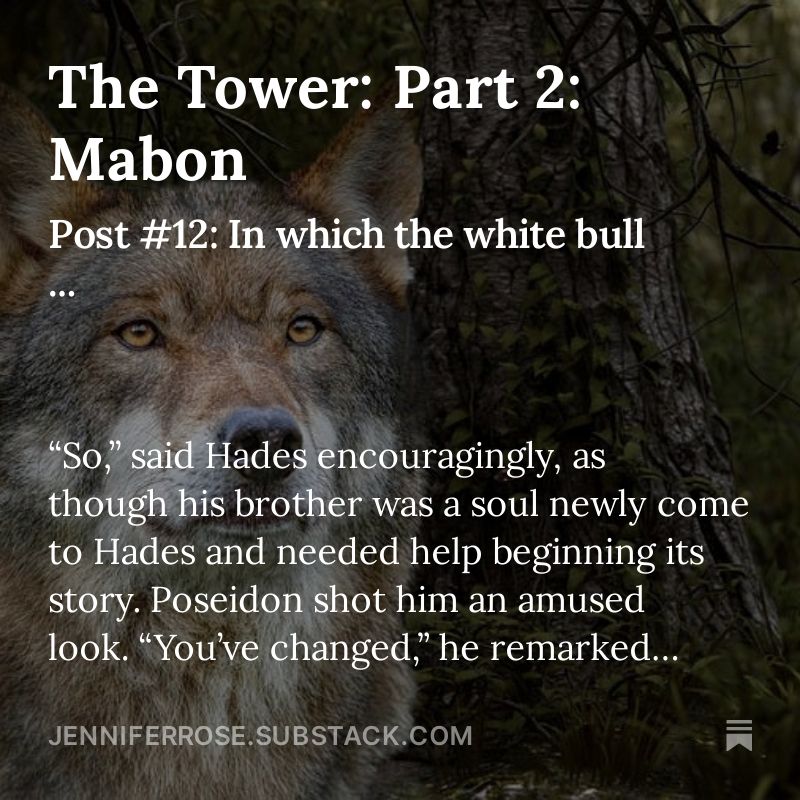
by Jenny Rose | Mar 16, 2024 | A Flourishing Woman, Mind
I’m still looking at my locked room, which I wrote about in my last post. I’ve had some interesting conversations about that post.
My emotional intelligence coach (who has now retired) used a phrase years ago when I was working formally with him: “I want everything you are and nothing you are not.”
It touched a deep, lifelong longing in me to be loved, accepted, seen in my entirety, though I know I would never allow myself to be seen in my entirety.
Through the years since, I’ve carried that phrase with me as I love and interact with those around me. Depending on my mood, it’s a ridiculous, impossible-to-achieve sentiment for any human being, cruel in its false hope, akin to rom coms. Or it’s something to aspire to, a reminder to be softer with my rigidities and expectations, quicker to forgive.
As I wrote a couple of weeks ago about locked internal rooms, it suddenly struck me in all the years I’ve been thinking about that phrase I never once said it to myself. I’ve been focused on my grief and shame about never being good enough to find that kind of love from another human being, or on my suspicion that none of us can honestly say that to one another. Not day after day in the long term.

Photo by Ryan Moreno on Unsplash
Over the last decade or so I’ve slowly, agonizingly, stopped hoping a prince on a white horse would show up who would love everything I am, or even love part of what I am unconditionally. (But, honestly, I wanted him to love everything!) I’ve turned more and more towards meeting my own needs for intimacy and connection, realizing the pain of disconnect is from within myself, not external. I want unconditional love. It’s not a feeling I have any power to make others feel.
Unconditional love towards myself, however, is a minute-by-minute challenge in which I have all the power.
Now, that’s a thought.
Extending unconditional love to myself is hard. I would a thousand times rather love someone else and dream of Mr. Right, except I know how that ends … and frankly, I’m bored with it. In fact, it occurred to me a couple of days ago I’m really not interested in Mr. Right anymore. Or Mr. Wrong. Or Mr. Anybody, romantically speaking. I’ve been smiling about that realization ever since. It’s oddly freeing. I watch women in my age cohort with their husbands/significant others where I work in a pool rehab center and think, “Better you than me, sister!” And smile some more. An enigmatic lifeguard smile (I hope).
The whole idea of romance doesn’t fascinate me anymore unless it’s strictly fantasy. Repairing and healing my relationship with myself is far more interesting. This refocus may be the greatest gift of menopause. I know some women grieve over it, but for me it’s freedom from what was frequently an overwhelming, stressful, and complicated biological imperative. Whew.
Is it possible for us to love ourselves unconditionally? Is it possible for me to do so?
What a question! A question leading straight back to my locked room.

Photo by John Salvino on Unsplash
I can’t love everything I am and nothing I’m not if I don’t know everything I am. If I don’t want to know. If I refuse to find out.
(Item: in my last Tarot spread for Imbolc I drew the Sea: Plumbing the Depths card.)
Now, like all of us, I have acceptable (to me) qualities and traits and unacceptable ones. I’m a mishmash of genetic inheritance and learned behavior. I’m a hot mess and I’m reasonably competent and effective. Sometimes all at the same time!
And I’m supposed to unconditionally love that?
Well, yes. That’s what unconditional love is, right?
I have a varicose vein popping up. I’m deeply insulted. WTF? I’m supposed to love that? I’m supposed to love the genetic inheritance/sun exposure/years of chronic pain that caused me to be sedentary/and other factors in the tired, bulging, blue-violet vein in my lower leg? What about the foot I’m pretty sure I’m developing a touch of arthritis in? What about my aging neck? What about my age-spotted hands (more sun exposure)?
And that’s just the beginning. I’m supposed to love the roots of my perfectionism, my speeding, my anxiety? Well, not the roots, but the child who was traumatized and developed those mechanisms to survive? (And did survive, let’s not forget.)
Romantically speaking, it’s easy to love white horses, roses, diamonds, champagne, sexy exotic vacations (none of which I find especially romantic, but you know what I mean!). I can love my competence, doggedness, creativity, integrity, ability to support others, and many other fine qualities (if I do say so myself). But the aches and pains, sleepless nights, endless loops of anxiety, tendency toward depression, rigidity, fawning, inept healthy boundaries and self-advocating – these are not lovable. These are a pain in the ass.
I am a frequent pain in my own ass.
Can anyone relate?
As for mistakes (I turned out the ladies’ locker room light while someone was still in there last week when we closed the pool!), shameful thoughts and feelings, dire deeds I wish I could forget, habitual catastrophizing, hurt I’ve inflicted on others, parenting mistakes, and a host of other miserable dead bodies in my locked room, unconditional love means I love those, too. It means I love my fallible, aging, flawed, exceedingly human self. All of it. All of me.

Photo by Cristian Newman on Unsplash
It makes me want to permanently lose the keys to my locked room.
Then there’s the “nothing I am not” part of the equation. Boundaries again. I’m so tired of working on boundaries. On the other hand, having no boundaries makes life not worth living, so I persevere. “Nothing I am not” includes what I was taught about myself and my role in my family as a child; false and limiting beliefs; my endlessly carping, nitpicking, internal critic; fear; despair; depression; anxiety; etc., etc. We carry so many burdens, and many of them never belonged to us in the first place. We took them upon ourselves, or someone forced them upon us, or we accepted them in order to ‘help’ someone else. Some are simply old coping mechanisms allowing us to survive our hard times but now outdated and useless.
At the end of all this, I wonder if our locked rooms are just another challenge in love. How much of ourselves do we shut away because we can’t love all of what we are, and we’re certain others couldn’t love us if they knew what was behind the door?
In the case of storing experience too horrific to manage, such as deep trauma, grief, or guilt, don’t those feelings need unconditional love most of all? The locked room itself, however we envision it, however we envision its door, is surely deserving of love too. It allows us to continue to function in life in spite of terrible experiences. It gives us respite, a way to pause, a way to give ourselves time to gain distance, wisdom, grow into new skills and learn how to help ourselves if and when we do crack the door open. It allows us to stay safe and sane.
For me, a choice to practice loving everything I am and nothing I’m not means I’ll be opening the door to my locked room and poking around in there. Now I’m curious. Could I at least consider loving what I find?
I’m considering it. Carefully.
Questions:
- What do you love about yourself?
- What do you have to do, be, or stop doing to earn your own love?
- Do you think more about finding someone to love you or practicing self-love?
- What if finding “true love” is impossible unless we love ourselves fully first?
Leave a comment below!
To read my fiction, serially published free every week, go here: 